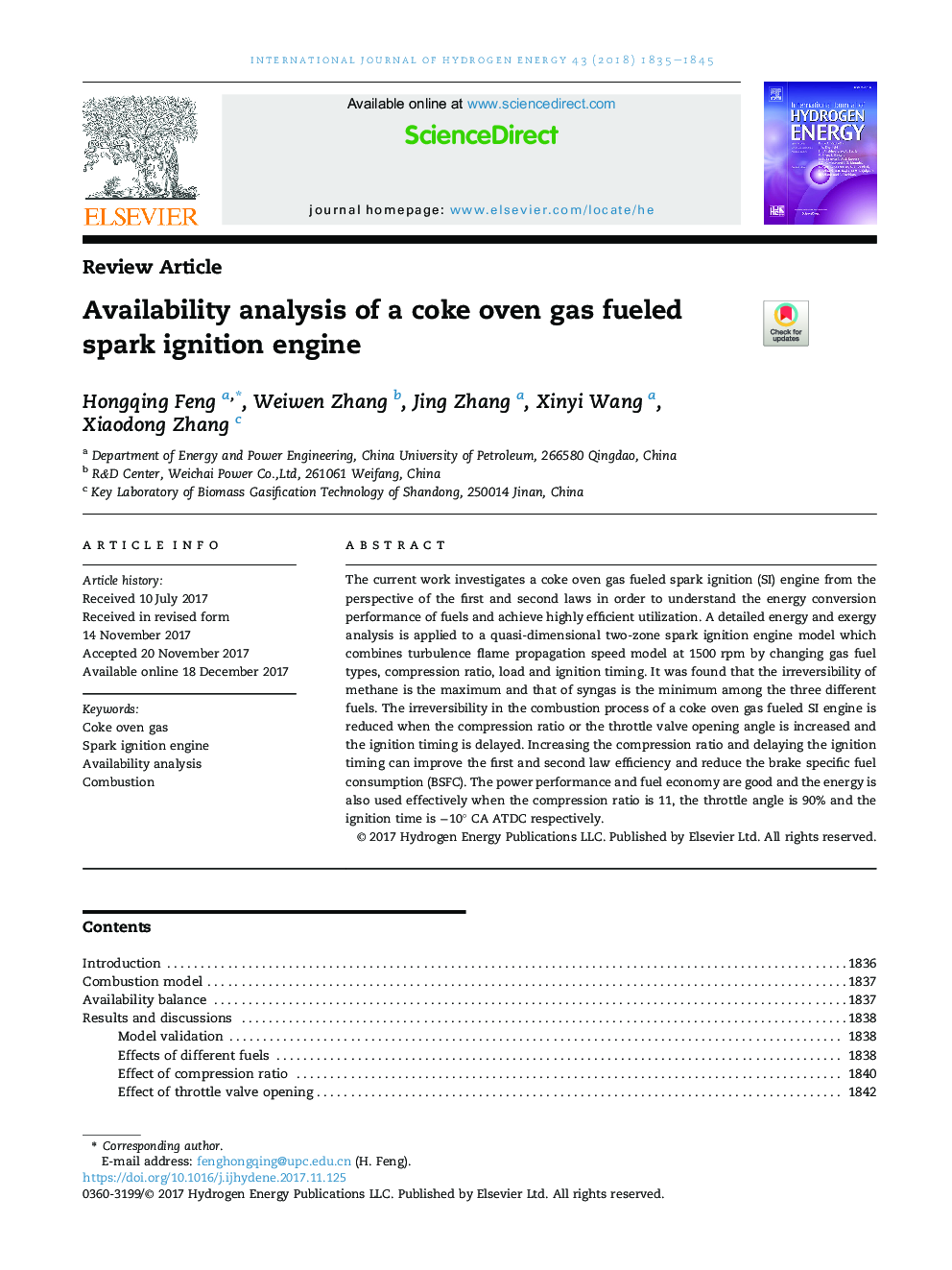| Article ID | Journal | Published Year | Pages | File Type |
|---|---|---|---|---|
| 7708438 | International Journal of Hydrogen Energy | 2018 | 11 Pages |
Abstract
The current work investigates a coke oven gas fueled spark ignition (SI) engine from the perspective of the first and second laws in order to understand the energy conversion performance of fuels and achieve highly efficient utilization. A detailed energy and exergy analysis is applied to a quasi-dimensional two-zone spark ignition engine model which combines turbulence flame propagation speed model at 1500 rpm by changing gas fuel types, compression ratio, load and ignition timing. It was found that the irreversibility of methane is the maximum and that of syngas is the minimum among the three different fuels. The irreversibility in the combustion process of a coke oven gas fueled SI engine is reduced when the compression ratio or the throttle valve opening angle is increased and the ignition timing is delayed. Increasing the compression ratio and delaying the ignition timing can improve the first and second law efficiency and reduce the brake specific fuel consumption (BSFC). The power performance and fuel economy are good and the energy is also used effectively when the compression ratio is 11, the throttle angle is 90% and the ignition time is â10° CA ATDC respectively.
Related Topics
Physical Sciences and Engineering
Chemistry
Electrochemistry
Authors
Hongqing Feng, Weiwen Zhang, Jing Zhang, Xinyi Wang, Xiaodong Zhang,
